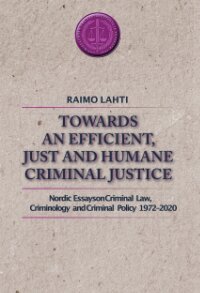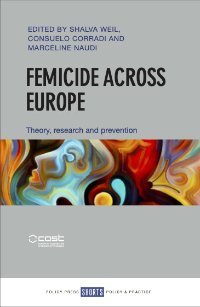Edited by Nils Duquet
This report contains the 7 country studies – Belgium, Estonia, the Netherlands, Poland, Serbia, Spain and Sweden – that were undertaken as part of the second phase of project TARGET. While the reader will be able to observe interesting similarities between the situations in these countries, it is clear that gun violence in Europe is not a homogenous phenomenon.
In the first phase of Project TARGET quantitative and qualitative data on gun violence and firearm trafficking was collected in 34 European countries (27 Member States of the European Union, the United Kingdom, and six countries in the Western Balkans). In a second phase, dedicated research teams analysed the situation in seven European countries in depth. The results of the comparative analysis of all the data collected during the different phases of Project TARGET were published in the report Targeting gun violence and trafficking in Europe that was published by the Flemish Peace Institute in December 2021.
This project was coordinated by the Flemish Peace Institute and cofunded by the European Union. The research partners in this project were Leiden University, Arquebus Solutions, Stockholm International Peace Research Institute (SIPRI), the University of Warmia and Mazury in Olsztyn, and the Victimology Society of Serbia. The project was supported by Europol, the Dutch National Police, the UN Office on Drugs and Crime (UNODC), the South Eastern and Eastern Europe Clearinghouse for the Control of Small Arms and Light Weapons (UNDP’s SEESAC) and the European Centre for Drugs and Drugs Addiction (EMCDDA).
Firearm trafficking and gun violence go hand in hand in Europe. An important reason for this is that criminals generally do not have access to legally-held firearms and thus need to resort to illicit gun markets – either locally or internationally - to acquire firearms. Yet, while all European countries are confronted with a certain degree of firearm trafficking, the levels of gun violence and the availability of firearms on criminal markets differ substantially across Europe. In recent years firearm trafficking has fuelled criminal gun violence and even terrorism in several European countries, but other countries seem to be much less affected. This book contains chapters on gun violence and firearm trafficking in seven different European countries: Belgium, Estonia, the Netherlands, Poland, Serbia, Spain and Sweden. While the reader will be able to observe interesting similarities between the situations in these countries, it is clear that gun violence in Europe is not a homogenous phenomenon. The country-specific analyses in this book were undertaken as part of Project TARGET, a large-scale research project on the linkages between gun violence and firearm trafficking in Europe. This project was coordinated by the Flemish Peace Institute, an independent research institute affiliated to the Flemish Parliament (Belgium), and cofunded by the European Union’s Internal Security Fund. The research partners in this project were Leiden University, Arquebus Solutions, Stockholm International Peace Research Institute (SIPRI), the University of Warmia and Mazury in Olsztyn, and the Victimology Society of Serbia. The project was supported by Europol, the Dutch National Police, the UN Office on Drugs and Crime (UNODC), the South Eastern and Eastern Europe Clearinghouse for the Control of Small Arms and Light Weapons (UNDP’s SEESAC) and the European Centre for Drugs and Drugs Addiction (EMCDDA). In the first phase of Project TARGET quantitative and qualitative data on gun violence and firearm trafficking was collected in 34 European countries (27 Member States of the European Union, the United Kingdom, and six countries in the Western Balkans). In a second phase, dedicated research teams analysed the situation in seven European countries in depth. This is done in an attempt to describe the dynamics of gun violence, firearm trafficking and the possible linkages between both phenomena. In a third phase various interviews were undertaken to complement the collected data. The results of the comparative analysis of all the data collected during the different phases of Project TARGET were published in the report “Targeting gun violence and trafficking in Europe” that was published by the Flemish Peace Institute in December 2021. This book contains the country studies that were undertaken as part of the second phase of the project. The first chapter of this book focuses on Belgium, a European country that is traditionally known for its history and passion for firearms. Although no reliable estimates of the illegal firearms possession rate in Belgium exist, law enforcement agencies in the country believe the availability of firearms on the criminal market has increased in recent years. Belgium has a reputation as a hotspot for illicit firearm trafficking in Europe, with criminal demand driven by drugs traffickers and armed robbers. Yet, different types of criminals tend to possess and use different types of firearms in Belgium. While armed robbers tend to use handguns, including blank firing weapons and modified firearms to threaten their victims, drugs criminals more often use their firearms in shootings. Military-grade firearms - very often smuggled conflict legacy weapons from the Western Balkans but also reactivated firearms - are more often used in the drugs context than in other criminal contexts. These types of weapons have also ended up in the hands of terrorists after being trafficked via Belgium. While clear linkages can be observed between firearm trafficking and criminal and terrorist violence, the impact of firearm trafficking on domestic violence is quite limited since this type of violence is generally carried out with firearms that are available to the perpetrator at that time, including legally-held firearms and ‘non-regularized’ firearms that are not trafficked. In Estonia, the focus of the second chapter of this book, firearm trafficking and gun violence are rather rare phenomena, and a clear-cut connection between them has not been observed in recent years. While both phenomena were significant security problems in Estonia in the decade after the country regained its independence from the Soviet regime, this is no longer the case. Firearm trafficking is quite limited and often involves the reactivation of firearms. Organised crime groups are not frequently involved in firearm trafficking; it is mainly carried out by opportunistic individuals on an ad hoc basis. Criminal gun violence is rather exceptional since the use of firearms by criminals is marginal. Incidents of gun violence largely occur in the family context and involve the consumption of alcohol. The perpetrators in such incidents are generally not criminals and lack access to trafficked firearms. Unsurprisingly, almost 40% of the firearms homicides are committed with a legally-held firearms. The other firearm homicides were committed with an illegally-held firearm, but these firearms are generally not trafficked weapons. Instead, often non-regularised firearms, which have been held illegally since the Second World War or since the proliferation of firearms after the collapse of the Soviet Union in the early 1990s are being used. The third chapter of this book analyses gun violence and firearm trafficking in The Netherlands. Like in Belgium, a strong nexus between firearm trafficking and drugrelated criminal violence can be observed in The Netherlands. The very lucrative character of cocaine-trafficking, but also the presence of synthetic drug production and trafficking in the country, has increased criminal demand for firearms and boosted firearm trafficking, including in military-grade firearms. This has fuelled violent competition between organised crime groups, resulted in an arms race between criminals and boosted shootings in the criminal milieu. This criminal gun violence has also spilled over to other parts of society with recent high-profile shootings of a lawyer and a crime journalist. Over the years, The Netherlands has become an important destination and transit country for the various types of firearm trafficking in Europe, including the smuggling of conflict legacy weapons from the Western Balkans and reactivated firearms from Slovakia. The fourth chapter of this book focuses on Poland, which has one of the lowest firearms homicide rates in Europe. The low level of gun violence in the country is strongly connected to the low levels of firearm trafficking and the low criminal demand for firearms in the country. Yet, like in Estonia, this was not always the case: after the collapse of the Soviet Union, firearm trafficking increased substantially with emerging criminal groups fighting each other for control over lucrative criminal markets. Since the mid-1990s the number of firearms seizures increased and reached its peak around 2000, with a significant portion of the firearms being smuggled into the country from Czechia and Slovakia. Although firearms seizures have gradually decreased afterwards, these two countries can still be considered key source countries. Poland has also become more of a transit country than a destination country with regard to firearm trafficking. In recent years the number of firearm seizures at the border has increased strongly. Especially firearm trafficking at the border with Ukraine has become a key concern for Polish law enforcement agencies, who warn about the future risk for increased trafficking in conflict-legacy weapons from Ukraine. In the fifth chapter gun violence and firearm trafficking in Serbia are analysed. Serbia is characterised by a high rate of both legal as well as illegal firearms possession, resulting from a cultural and historical tradition of firearms possession and production, and from its recent history of armed conflict and political instability. Firearms possession is dominated by young and middle-aged men and largely motivated by tradition, hunting and self-defence. Although the scope of illicit firearm possession is difficult to estimate, this possession is widely believed to be significant. The armed conflicts in the region have fuelled gun violence within Serbia and in other European countries. During these armed conflicts large amounts of firearms have ended up in the hands of civilians, where many of them have stayed for numerous years. An unknown share of these conflict legacy weapons have in recent decades, however, also been smuggled to other parts of Europe, where they are being used in the criminal milieu. Illegally-held conflict legacy firearms are not only trafficked out of the country, but also used by criminals – especially armed robbers – within the country. Gun violence in Serbia is mainly a ‘male phenomenon’ with male perpetrators and victims, with the exception of gun violence in a family context in which most victims are women. Gun violence in this context also tends to be far more lethal than in the criminal context and, like in other countries, frequently involve legally-held firearms. The sixth chapter of this book focuses on Spain, where the scope of both lethal and non-lethal gun violence has strongly decreased over the years. Yet, in the southern part of Spain gun violence, strongly connected to drug trafficking, is a significant security issue. Criminal gun violence in Spain mainly consists of (often lethal) incidents related to score-settling between crime groups involved in drug trafficking and the (generally non-lethal) use of firearms in armed robberies. In the criminal milieu especially handguns are used. The criminal acquisition of these firearms is clearly linked to international firearm trafficking, and especially the trafficking in reactivated and converted firearms. While high-level criminal groups, especially those in the south of the country, tend to have access to wide range of firearms, including automatic rifles, lower-end criminals tend to rely on lesser quality firearms. Domestic gun violence on the other hand, is not clearly linked to firearm trafficking. In such incidents of gun violence especially long guns are used, which are believed to be mainly legally held. In the final chapter the situation in Sweden is analysed. Gun violence in Sweden has increased dramatically in the last decade and this evolution is strongly connected to firearm trafficking. Increased firearm trafficking into the country has led to a greater supply of firearms in general but also automatic firearms in particular. For a long time, most of the firearms trafficked into Sweden came from the Western Balkans. Yet, since the mid-2010s the supply of firearms diversified with, next to the steady supply of firearms from the Balkans, also the increased supply of reactivated firearms and (converted) blank firing weapons. This diversification has opened up new pathways for criminals to access firearms, which in turn lowered the threshold for gun violence especially by younger criminals. As a result, the profile of gun violence in the country in recent decades has shifted away from incidents in the family context, which tend to take place in private settings and often involve legally-held firearms, towards more incidents in the criminal context, which generally take place in public settings and involve illegally-held firearms. Resorting to gun violence has become an established norm in the criminal milieu in Sweden and has, in turn, boosted firearm trafficking since criminal groups are now often involved in a miniature arms race. Consequently, Sweden has become one of the most important hotspots for gun violence in Europe. In a global perspective, levels of gun violence and firearm trafficking in Europe can be considered relatively low. Yet, both phenomena continue to have serious security implications in Europe. Policy initiatives to prevent gun violence and combat firearm trafficking are hindered by the lack of a clear intelligence picture. With this book we aim to contribute to a better understanding of the dynamics of both gun violence and firearms trafficking across Europe, and to a better understanding of the dynamics between these two phenomena. Even in a region with relatively low levels of gun violence and firearm trafficking, the lack of a sound understanding of these phenomena can have far-reaching consequences for peace and security in our societies
Brussels: Flemish Peace Institute, 2022. 444p





















